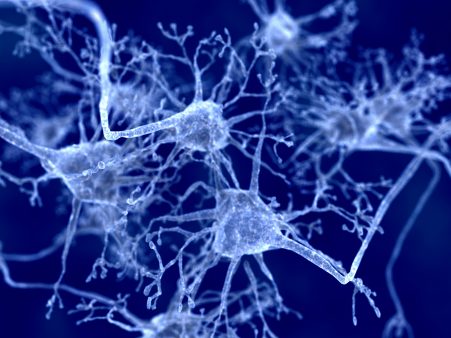Cardiff University/Cardiff Half Marathon funds support neuroscience research
13 September 2017
At the 2016 Cardiff University/Cardiff Half Marathon, members of #TeamCardiff who raised money for neuroscience and mental health research have directly enabled three seedcorn grants to support research within Cardiff’s Neuroscience and Mental Health Research Institute.
Seedcorn grants support the development of new research projects, of which the following have received funding:
Professor Philip Taylor – Understanding microglial heterogeneity at the level of the single cell in the context of neuropsychiatric disease
“The immune system has been implicated in the development of Alzheimer’s disease. Immune cells in the brain (called ‘Microglia’) are involved in the normal maintenance of the tissue and regulation of inflammatory responses, but their diversity and contribution to disease process is not fully understood.
This project will establish the single cell transcriptomic analysis of microglia in Cardiff, with the results used as a benchmark for establishing routine technique within the Dementia Research Institute in Cardiff for use in the study of Alzheimer’s disease and related neuroinflammatory conditions.”
Dr Mathew Clement (PhD 2013) – Examining the role of chronic virus infection in exacerbating the development of Alzheimer’s disease
“The main focus of my current research is the study of the inflammatory human pathogen Human cytomegalovirus (HCMV). This virus is spread rapidly and establishes lifelong infection in approximately 50-60% of humans. HCMV infection is typically asymptomatic in healthy individuals, however the virus reactivates in the immunocompromised with debilitating consequences.
Further, HCMV is the leading congenital infection, infecting up to 2.5% of live births and causing life-long neurological defects, and has been associated with markers of age-associated progressive decline in the immune system.
Recent data now highlights the potential role of HCMV infection in causing an increased risk of developing Alzheimer’s Disease (AD) together with an associated increased rate of cognitive decline in humans. However, there remains a lack of clear data regarding the underlying virus-induced mechanisms behind these observations and the central question of whether CMV directly drives AD development.
The main focus of my project is to study the immunological and neurological properties of the CMV-induced immune response in an infected individual and how this exacerbates AD development. The importance of this study will address the significant gap in our current understanding of the role played by viral infection and AD progression.”
Dr Matt Hill – Molecular consequences of microglial CSF1R activation and genetic risk mechanisms for Alzheimer’s disease
“Genetic studies of Alzheimer’s disease have highlighted the immune system as an important pathway for disease risk. Similarly, drugs that alter the function of immune cells in the brain show alleviation of symptoms in animal models of Alzheimer’s disease.
This project will explore the biological link between genetic risk and mechanisms of drug action, with the results used to benchmark the therapeutic potential of other drug pathways that might be important for the treatment of Alzheimer’s disease.”
- July 2024
- June 2024
- May 2024
- April 2024
- March 2024
- February 2024
- January 2024
- December 2023
- November 2023
- October 2023
- September 2023
- August 2023
- July 2023
- June 2023
- May 2023
- April 2023
- March 2023
- February 2023
- January 2023
- November 2022
- October 2022
- September 2022
- August 2022
- July 2022
- June 2022
- May 2022
- April 2022
- March 2022
- February 2022
- January 2022
- December 2021
- November 2021
- October 2021
- September 2021
- August 2021
- July 2021
- June 2021
- May 2021
- April 2021
- March 2021
- February 2021
- January 2021
- December 2020
- November 2020
- October 2020
- September 2020
- August 2020
- July 2020
- June 2020
- May 2020
- April 2020
- March 2020
- January 2020
- December 2019
- November 2019
- October 2019
- September 2019
- August 2019
- July 2019
- May 2019
- April 2019
- March 2019
- February 2019
- January 2019
- December 2018
- November 2018
- October 2018
- September 2018
- August 2018
- July 2018
- June 2018
- May 2018
- April 2018
- March 2018
- February 2018
- December 2017
- November 2017
- October 2017
- September 2017
- August 2017
- July 2017
- June 2017
- May 2017
- April 2017
- March 2017
- February 2017
- January 2017
- November 2016
- October 2016
- September 2016
- July 2016
- June 2016
- May 2016
- April 2016
- March 2016
- February 2016
- January 2016
- December 2015
- November 2015
- October 2015
- September 2015
- August 2015
- January 2015
- December 2014
- November 2014
- September 2014
- August 2014
- May 2014